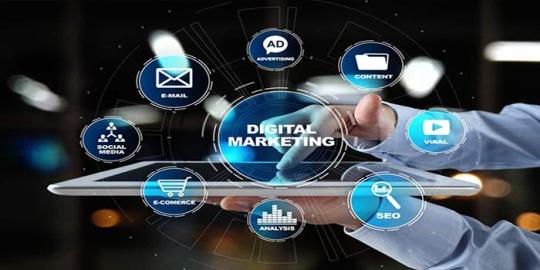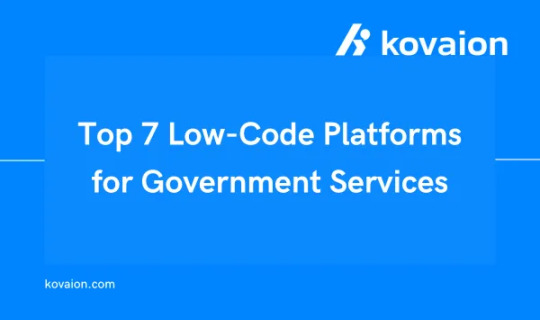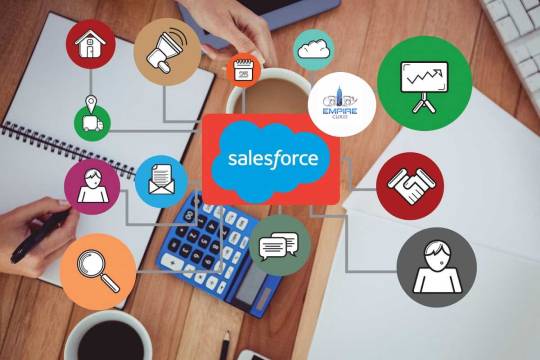#salesforce dynamic forms
Text
Build The Salesforce Dynamic Forms With Brainiate Show

Salesforce Dynamic Forms is a feature introduced by Salesforce that allows users to build and customize forms within the Salesforce platform. These forms can be used to store data from various sources, such as leads, contacts, opportunities, and custom objects. With Dynamic Forms, users have more flexibility in designing and managing their data entry forms, making it easier to collect and organize information. So, Brainiate Show also provides guidance for how to build the best salesforce dynamic forms.
2 notes
·
View notes
Link
In 2019, during the Dreamforce event, Salesforce introduced Dynamic Forms as one of the top features in the UI enhancements roadmap in Admin & Lightning Keynotes. Since then, Dynamic Forms have come a long way and are now available as a Non-GA Preview in Salesforce’s Summer ’20 release.
Dynamic Forms are set to become a significant feature that empowers consultants and admins with granular control over their record pages. With Dynamic Forms, it is now possible to customize fields and sections on a page based on the specific needs of a business, all through a declarative setup.
1 note
·
View note
Text
How does a Salesforce Implementer help your organization?
Implementing Salesforce is a good decision for your organization. But, how will your configure your Salesforce CRM? Do you like to make Form Titan Salesforce integrations? How will you make an optimal use of the Salesforce application? This is where you will find the need for hiring a Salesforce implementation professional.

A Salesforce implementer works together with your in-house staff to let you get the best Salesforce solutions according to your needs. He may also be specialized in particular industries and applications. Your Salesforce journey will be smooth by hiring this implementation partner.
What are the major roles of Salesforce implementers?
Most organizations that have chosen the Salesforce CRM have a team to work on the platform. Some startups also hire an implementation partner from a different agency. A reliable Salesforce implementation partner has technical skills and industry knowledge to help you. Implementation is not everything about user password generation. The implementer needs to understand your business and maintain a proper workflow. He also lets you make a decision on Salesforce marketing cloud pricing options. Read More@
#Form Titan Salesforce Integration#salesforce marketing cloud pricing#salesforce financial cloud services#dynamic forms salesforce#Salesforce Implementer
0 notes
Text
Marketing Automation Tools for Digital Marketing Success
In the dynamic world of digital marketing, efficiency and precision are essential. As a digital marketing consultant, staying on top of the latest trends and technologies is crucial to deliver exceptional services to your clients. Marketing automation tools have emerged as indispensable resources for digital marketing consultants, helping streamline campaigns, increase productivity, and achieve better results. In this blog, we'll explore the significance of marketing automation tools and how they can benefit your digital marketing consulting business, whether you're an affordable digital marketing agency, a provider of digital marketing services for startups, or catering to small businesses.

Understanding the Role of Marketing Automation Tools
Marketing automation tools are designed to automate and simplify repetitive marketing tasks and processes. They empower digital marketing consultant to deliver targeted, personalized, and data-driven campaigns with greater efficiency and effectiveness. Here's why these tools are vital for your digital marketing consulting business:
Efficiency: Automation reduces the manual workload, allowing you to focus on strategy, creativity, and client relationships.
Consistency: Automation ensures that marketing campaigns and communications are delivered consistently and at the right times, enhancing the customer experience.
Personalization: Marketing automation enables you to create highly personalized content and offers based on user behavior and preferences, which can significantly improve conversion rates.
Data-Driven Insights: These tools provide valuable data and analytics to measure the success of campaigns and make data-driven decisions.
Lead Nurturing: Marketing automation tools facilitate lead nurturing, helping you move potential clients through the sales funnel.
Now, let's dive into the marketing automation tools and techniques that can elevate your digital marketing services:
Email Marketing Automation
Email marketing remains a powerful tool for nurturing leads and retaining clients. Marketing automation tools like MailChimp, HubSpot, or ActiveCampaign can automate email campaigns, segment your audience, and deliver personalized content. You can set up automated email sequences, trigger emails based on user behavior, and track open rates and click-through rates to refine your strategies.
Social Media Management and Automation
Effective social media management is essential for your clients' online presence. Tools like Hootsuite, Buffer, or Sprout Social allow you to schedule posts, track engagement, and analyze social media performance. Automation features can help you maintain a consistent presence, even during non-working hours or when you're handling multiple client accounts.
Customer Relationship Management (CRM) Systems
A CRM system like Salesforce or HubSpot CRM can centralize client data, track interactions, and manage leads and contacts effectively. It enables you to segment clients based on their needs and preferences, making it easier to deliver tailored marketing campaigns. Plus, CRM systems often integrate with marketing automation tools for seamless coordination.
Lead Generation and Capture Tools
Marketing automation tools like OptinMonster, Unbounce, or Leadpages help you create high-converting landing pages and lead capture forms. These tools are especially valuable for collecting leads from client websites and creating targeted campaigns to engage those leads.
Content Marketing Automation
Content is the heart of digital marketing. Tools like SEMrush and CoSchedule can assist in keyword research, content creation, and scheduling. They also offer analytics to assess the performance of your content, helping you fine-tune your content strategy.
Marketing Analytics and Reporting
To measure the effectiveness of your campaigns, you need comprehensive analytics tools like Google Analytics and Google Data Studio. These tools help track website traffic, user behavior, and conversion rates. You can also use them to generate in-depth reports that demonstrate the impact of your services to your clients.
Workflow and Project Management
Managing multiple clients and campaigns can be overwhelming. Tools like Asana, Trello, or Monday.com can streamline project management and improve collaboration. They allow you to set tasks, deadlines, and priorities, ensuring that no details are missed.
Chatbots and AI-Powered Tools
AI-driven chatbots like Intercom and Drift can provide real-time support and engage website visitors. They answer common questions, capture leads, and schedule appointments, providing valuable interactions even when you're not available.
A/B Testing and Optimization
Optimizing digital marketing campaigns is an ongoing process. Tools like Optimizely and VWO allow you to perform A/B testing on various elements of your campaigns, including landing pages, email subject lines, and ad copy. This data-driven approach helps improve conversion rates and ROI.
Marketing Automation Consultation and Training
Don't overlook the importance of expertise in using these tools. Consider providing consultation and training services to your clients in the area of marketing automation. This not only enhances your value but also deepens client relationships.
Integration of Automation Tools
To maximize efficiency, consider integrating various automation tools. For instance, connecting your CRM system with your email marketing platform can help you automate lead nurturing and sales processes. The goal is to create a seamless and interconnected marketing ecosystem.
Compliance and Data Security
As you utilize marketing automation tools, ensure that you adhere to data protection regulations, such as GDPR. It's crucial to maintain the security and privacy of your clients' data.
Challenges in Implementing Marketing Automation Tools
While marketing automation tools offer numerous benefits, they come with certain challenges:
Learning Curve: Implementing and using these tools effectively requires a learning curve. Be prepared to invest time in training and familiarizing yourself with the software.
Integration: Integrating multiple tools and ensuring they work harmoniously can be complex. Choose tools that offer robust integrations and provide technical support.
Cost: High-quality marketing automation tools can be costly. As an affordable digital marketing agency or consultant, you may need to balance the benefits of automation with your budget.
Data Quality: Automation relies on data. If your data is inaccurate or outdated, it can lead to inefficiencies and poor campaign performance.
Customization: Finding the right balance between automation and personalized client experiences can be challenging. Strive to create campaigns that feel tailored rather than robotic.
Marketing automation tools are invaluable assets for digital marketing consultants looking to enhance their services, whether they cater to startups, small businesses, or offer affordable best digital marketing services. By integrating these tools into your workflow, you can streamline campaigns, enhance efficiency, and deliver personalized, data-driven strategies that yield better results. Remember that while marketing automation can significantly boost your effectiveness, it should be used strategically and tailored to the unique needs of your clients. The key is to stay informed about emerging trends and technologies in the world of marketing automation and adapt them to benefit your consulting services. With the right tools and strategies in place, you can provide top-notch digital marketing services and thrive in the competitive landscape of internet marketing.
Get in Touch !
Website – https://www.hireseoconsultants.com/
Mobile - +91 9212306116
Whatsapp – https://call.whatsapp.com/voice/9rqVJyqSNMhpdFkKPZGYKj
Skype – shalabh.mishra
Telegram – shalabhmishra
Email - [email protected]
2 notes
·
View notes
Photo

Now there are a lot of programs for call centers. Finding the best one to suit your needs can be a daunting task. There are some criteria that good software should have.
Powerful features
The first and foremost requirement for any call center software is that it must be equipped with the latest tools and services. Choose software that offers features such as call forwarding, voice mail, intrusion, recording, automatic alerts... Determine the features you need for your communication needs.
Simple interface
A user-friendly interface plays a big role in organizing a productive workflow. This increases the efficiency of your agents and makes it easier for them to complete their tasks. An easy-to-navigate interface allows agents to get all the information and tools they need from a single portal. User-friendly software reduces training time and effort.
Integration with other applications
Call center software is only useful when it offers a complete set of telecommunications requirements. And it definitely becomes powerful if it allows out-of-the-box integration with other applications. Agents do not need to switch screens or software when contacting a customer or otherwise. This creates unnecessary interference and degrades the quality of service. For example, VOISO facilitates integration with various third-party systems such as Salesforce, Zendesk, Pipedrive, Microsoft Dynamics, HubSpot, and more. It lets administrators monitor call queues, agents' performances, and work statuses by visualizing data in the form of graphs or charts.
Reliable service
Smart businesses opt for cloud-based software that connects over the Internet, thereby providing a routine service. The software vendor must obtain uptime to ensure operation.
10 notes
·
View notes
Text
The Evolution of Salesforce Training: Trends Shaping the Institute Landscape

Few tools have changed the landscape of contemporary corporate operations as much as Salesforce. Salesforce specialists are in high demand as the platform continues to grow and improve its capabilities. This is due to its tremendous Customer Relationship Management (CRM) capabilities. Training facilities have responded by changing and innovating to satisfy the increasing demands of professionals who want to become experts on this platform. Let’s examine the changing patterns that are reshaping the Salesforce training institute market.
1. Tailored Education Routes
The days of universally applicable training programmes are long gone. Salesforce training facilities now provide incredibly personalised learning programmes based on each student’s needs and professional goals. There is specialised training available inside the Salesforce ecosystem to help you reach your full potential as a sales executive, marketing specialist, or developer.
2. Practical Experience
The application of theoretical knowledge is limited. Training facilities are adding more and more practical experience to their curricula as they realise how important it is to have practical skills. Students can apply their learning in risk-free settings, such as sandbox environments or simulated real-world circumstances, and obtain invaluable experience that they can take with them into the job.
3. Adaptable Instructional Frameworks
Flexibility is essential in this day of hectic schedules and remote work. In response, Salesforce training providers have expanded their offerings to include a range of learning styles to suit a wide range of demands. There is a format that suits your lifestyle and learning choices, whether you prefer self-paced online courses, virtual instructor-led sessions, traditional classroom settings, or a combination of these possibilities.
4. Certification Readiness
Salesforce certifications are becoming the most recognised way to verify platform competence. As a result, training facilities now emphasise certification prep classes more. In addition to covering the necessary information and abilities to pass the tests, these programmes offer insider advice and techniques to assist students be successful in their certification pursuits.
5. Focus Areas with Specialisation
Training facilities are keeping up with Salesforce’s expansion of its offerings by creating specialised emphasis areas. Students can now specialise in certain areas of the platform, such as Salesforce Einstein AI, Sales Cloud, Service Cloud, or Marketing Cloud, and become experts in areas that support their career objectives.
6. Ongoing Education and Assistance
A certification is only the beginning of the learning process. Many training facilities provide alumni with communities and resources for continued learning because they understand the need of ongoing assistance and upskilling. Through various channels such as webinars, workshops, online forums, and mentorship programmes, students may remain informed and engaged with the most recent developments and trends in the Salesforce ecosystem.
7. Industry Collaborations and Employment Services
In the very competitive employment market of today, having the correct contacts can really pay off. In order to give students clear routes to career options, training facilities are forming alliances with prominent business executives and Salesforce consulting organisations. These organisations are dedicated to assisting graduates in launching their careers in the Salesforce ecosystem, offering anything from job fairs and networking opportunities to individualised career coaching.
In summary, the development of Salesforce training facilities is a reflection of the dynamic demands of the business world as well as the changing requirements of professionals who want to become experts on this potent platform. Through the implementation of personalised learning plans, practical experience, adaptable teaching methods, focus areas, certification training, ongoing education, and industry collaborations, these educational institutions are enabling people to reach their maximum potential and prosper in the ever-changing Salesforce environment. It’s the perfect time to engage in Salesforce training, whether you’re just getting started or want to grow in your profession.
Are you prepared to advance in your Salesforce journey? There’s nowhere else to look! Enrol in our in-depth Salesforce development course by joining LearNowx, the top Salesforce training organisation, right now. To advance your career, acquire practical experience, specialised knowledge, and industry-recognized certification preparation. Don’t miss out — register right away with LearNowx to become an expert in Salesforce!
0 notes
Text
what is Jpetto? How to help our bussiness?
So, what is JPETTO? It’s a project management tool built entirely on the Salesforce CRM platform to empower Entrepreneurs and small business owners with enterprise-level tools at an affordable price. Throughout my journey with this company, I have faced countless challenges for my clients where the necessary tools exist, but their price point is entirely unobtainable. $15 per user per month for a device that logs time, another $15 for project management, $50 to build forms, etc. As a freelancer, it’s tough, but as a startup, those prices quickly pile up into tens of thousands yearly. Often, you also end up paying for a bunch of features you don’t need so that you can use the 1-3 that apply to your company.
Whether it has one employee or one thousand, every business can benefit from the tools a CRM like Salesforce offers. I want JPETTO to be an entry point into CRM usage. It provides a significant set of features that any company can use to help organize their day, boost productivity via automation, reduce cost, and centralize services into a single source of truth in one fell swoop.
At this point, you are surely wondering what exactly JPETTO can do. Here is a high-level list of just SOME of what we have built so far and some teasers for what’s coming next:
Features at launch will include:
* Create projects related to accounts/clients
* Create project teams with roles showing who is who and how to contact them
* Create sprints per project
* Create work items for projects (bugs, user stories, dev/admin tasks, etc., with progress tracking similar to tools like JIRA or Azure Devops)
* Generate timesheets automatically per user and pay period
* Log hours to work items per user
* Timesheet submission and approval processes
* Show project financial estimates based on project team hourly rates, estimated hours vs. budget, rate billed to the client, and billable vs. non-billable hours
* Custom-built messenger that links conversations to a single record, user, etc.
* Optional messenger integration with Slack so that each work item/client/etc. It can have its Slack channel, and communication can occur seamlessly between Salesforce and Slack at the record level
* Customer portal access (with salesforce digital experience licenses) to allow clients real-time access to project progress, work items, reports, dashboards, etc.
* Fully integrated and built on the Salesforce platform
Other features that are in development mostly done but just need final testing and refinement:
* Clockify integration to boost timesheet features and add things like productivity monitoring with screenshots throughout the day
* Quickbooks integration to autogenerate invoices based on hours logged, project rates, etc.
* Custom-built, drag-and-drop form builder fully native to Salesforce (similar to apps like form assembly, conga, etc.)
* Advanced admin and budget notification systems for things like what to do when a project budget has been reached (change hours to non-billable without client approval, send change requests for support, send requests for approved overages which then get automatically added to the overall budget, and more)
* Manager Dashboard that shows all accounts, projects, work items, logged hours, timesheet submissions, timesheet approvals, and more in a single dynamic view
Long-term goals/features
* B2B connector, so that a client org can install a lightweight connector that will allow them to see the same limited view of data related to the project in their salesforce instance. This would reduce the cost of licenses on the consultant since clients already have licenses, and allow them to see all of the data they could see on the portal as an alternative to help keep costs low for startups & SMB
* Integration with Teramind to provide integrated productivity tracking at a much deeper level than clockify can provide
* Potential features include tracking hours automatically per client based on the URLs used within a timeframe, apps used, conversations with users or emails based on domain names, etc.
* AI Integration(s)
* chatGPT or similar to assist with creating code templates and optimizing code that developers, project summaries and forecasts, etc, have written.
* Sales Cadences, similar to High-Velocity Sales or SalesLoft. Many clients have requested a feature but cannot afford the few options available right now.
* Additional integrations for the messenger such as ms teams, WhatsApp, etc
* Integration with google workspace
And that’s only the tip of the iceberg!
0 notes
Text
Top 7 Low-code Platforms for Government Services
Government agencies face unique challenges in delivering services efficiently and securely. Low-code platforms have become essential tools for modernizing government IT environments, enabling faster development and deployment of applications with fewer resources. Here’s a look at the top 7 low-code platforms that stand out in the government sector, including the noteworthy mention of Kovaion among others.
Why Low-Code in Government?
Low-code platforms help government agencies to adapt to changing needs, meet rising citizen expectations, and cope with often limited resources. By enabling faster development and easier maintenance of applications, these platforms can assist governments in becoming more agile and citizen-centric.
Whether enhancing internal operations, improving citizen interactions, or ensuring data security, the right low-code platform can be transformative. Agencies looking to innovate their delivery service could benefit significantly from evaluating the capabilities of these top platforms.
1. Kovaion’s Low-code Platform
Kovaion’s low-code platform stands out specifically for its agility and user-friendly interface, which allows government departments to develop solutions that are robust yet simple to manage. It excels in creating applications that require complex business logic but need to be deployed quickly and efficiently. Kovaion’s commitment to compliance and security also makes it a preferred choice for government projects needing stringent data protections.

Here are the features incorporated into Kovaion’s Low-Code Platform:
AI-Powered App Builder
Advanced Form Builder
Drag & Drop Workflows
Interactive Dashboards
Responsive Application
Email Notifications
Seamless Integration
Attractive BI Dashboard
API Integration
OTP based Login
User role management (based on fields)
2. Microsoft Power Apps
Microsoft Power Apps is highly favored in government circles for its integration capabilities with other Microsoft products and services, like Office 365 and Dynamics 365. It offers robust security features, which are critical for government data, and provides a versatile environment to build apps that can automate processes and enhance citizen engagement.
3. Salesforce App Cloud
Salesforce App Cloud is another strong contender, known for its powerful CRM capabilities which can be leveraged in government services to manage interactions with citizens and streamline operations. Its drag-and-drop interface allows non-developers to create applications quickly, which can dramatically reduce backlog and improve service delivery.
4. Appian
Appian provides a platform that supports rapid application development with a focus on process automation and workflow improvements. It’s particularly useful for government agencies looking to streamline operations and increase efficiency in case management, compliance monitoring, and more.
5. Pega
Pega is well-known for its rule-based automation and case management features that help government agencies manage complex processes. It offers solutions that can be deployed on cloud or on-premises, giving agencies flexible options to meet their security requirements.
6. OutSystems
OutSystems is popular among government agencies for its ability to handle large, complex projects with high demands for scalability and security. The platform supports a wide range of application types, from simple departmental applications to enterprise-grade solutions.
7. Mendix
Mendix offers a strong suite of tools for collaborative development, which is ideal for government environments where teams often span different departments and locations. Its focus on rapid prototyping, automated testing, and agile deployment helps agencies to iterate quickly and effectively.
As government agencies adapt to rapidly changing technological and public service demands, low-code platforms have become critical tools for efficient and secure service delivery. Among them, Kovaion stands out with its tailored solutions for government operations. With its robust security, user-friendly interface, and agile capabilities, Kovaion simplifies application development while ensuring compliance and operational excellence. This makes it an ideal choice for government entities focused on innovation and reliability, positioning Kovaion as a leader in helping transform government service delivery effectively.
0 notes
Text
The 6 best field force management software options for 2024

The PSM App: Salesforce Field Service provides all the tools needed for field force management, such as dispatching, scheduling, route optimization, and mobile worker empowerment.
It offers a unified platform for managing field operations and customer interactions by easily integrating with Salesforce CRM.
ServiceNow Field Service Management: With features like work order management, asset tracking, and real-time collaboration capabilities, ServiceNow Field Service Management is a cloud-based system that simplifies field service operations. For end-to-end service delivery, it interfaces with other ServiceNow apps and has automation features.
Oracle Field Service Cloud: With its intelligent routing, mobile workforce enablement, and predictive scheduling, Oracle Field Service Cloud is a powerful field force management solution that maximizes service delivery.
Microsoft Dynamics 365 Field support: Equipped with sophisticated scheduling, resource management, and remote help capabilities, Microsoft Dynamics 365 Field Service enables field support teams.
FieldEZ: Work order management, GPS tracking, and mobile form customization are just a few of the capabilities available in this user-friendly field force management software.
ClickSoftware: A well-known provider of field service management solutions, ClickSoftware is now a part of Salesforce and is renowned for its sophisticated optimization algorithms and real-time field operations visibility.
visit site
#Field Staff Management Software#Best lead management software#Field Force Management Software#best sales tracking app#team management software#team management app#sales tracking application#team task management app#sales tracking app#online sales tracking software#team management application
0 notes
Text
Salesforce UI Customization
Salesforce UI Customization is all about making the platform work for you, specifically how you get things done. With a customized UI, you’ll be a data-powered powerhouse in no time.
#salesforce#salesforce development services#salesforce dynamic forms#salesforce technical debt#salesforce project management template
0 notes
Text
The Salesforce Course in Hyderabad
In the dynamic landscape of modern business, staying ahead requires leveraging cutting-edge technologies. Salesforce, a leading customer relationship management (CRM) platform, has emerged as a game-changer, enabling businesses to streamline operations, enhance customer relationships, and drive unprecedented growth. To harness the full potential of Salesforce, investing in the best Salesforce course is not just a choice—it's a strategic imperative.

Chapter 1: Understanding the Power of Salesforce
Section 1.1: Unraveling the Salesforce Ecosystem
The journey begins with a comprehensive exploration of the Salesforce ecosystem. Understand the core components, from Sales Cloud and Service Cloud to Marketing Cloud and beyond. Gain insights into the robust architecture that empowers organizations to manage their customer data, streamline processes, and make data-driven decisions.
Section 1.2: Navigating the User Interface
Mastering Salesforce starts with becoming proficient in its user interface. Dive into the intuitive platform, learning how to navigate effortlessly, customize dashboards, and optimize workflows. Discover the secrets of creating a seamless user experience for both clients and internal teams.
Chapter 2: Building a Foundation with Salesforce Administration
Section 2.1: Fundamentals of Salesforce Administration
Equip yourself with the skills needed to be a proficient Salesforce administrator. Learn how to set up and configure user accounts, manage data security, and customize fields to align with organizational requirements. Explore the art of creating and maintaining a robust data architecture that forms the backbone of a successful CRM implementation.
Section 2.2: Automation Magic with Workflow and Process Builder
Unlock the potential of automation in Salesforce with Workflow and Process Builder. From automating routine tasks to orchestrating complex business processes, discover how to save time and reduce errors. Dive into hands-on exercises that solidify your understanding and make you a master in automating workflows.
Chapter 3: Mastering Data Management and Integration
Section 3.1: Data Import and Export Strategies
Data is the lifeblood of any CRM system. Learn the best practices for importing and exporting data efficiently. Understand data cleansing techniques, handle data migrations seamlessly, and ensure the integrity of your Salesforce database.
Section 3.2: Integration Essentials
Explore the power of Salesforce integration, connecting your CRM with other essential tools and systems. Dive into the intricacies of integrating third-party applications, ensuring a seamless flow of data across your organization. Gain expertise in REST and SOAP APIs, and understand how to leverage them for maximum efficiency.
Chapter 4: Revolutionizing Customer Engagement with Sales and Service Cloud
Section 4.1: Elevating Sales Performance with Sales Cloud
Delve into the world of Sales Cloud, where deals are closed and revenue is generated. Learn how to optimize the sales process, manage leads, and drive collaboration among sales teams. Uncover advanced features like forecasting and analytics to make informed business decisions.
Section 4.2: Providing Exceptional Service with Service Cloud
Customer satisfaction is non-negotiable. Explore the Service Cloud functionalities that empower organizations to deliver unparalleled customer service. From case management to knowledge base setup, master the tools that ensure customer loyalty and build lasting relationships.
Chapter 5: Crafting Personalized Marketing Campaigns with Marketing Cloud
Section 5.1: Introduction to Marketing Cloud
Discover the art of creating targeted and personalized marketing campaigns using Salesforce Marketing Cloud. Explore email marketing, social media integration, and automation tools that revolutionize how businesses engage with their audience.
Section 5.2: Analyzing Campaign Performance
Measure the impact of your marketing efforts with in-depth analytics. Learn how to track and analyze campaign performance, gaining insights that drive continuous improvement. Understand the importance of data-driven decision-making in refining your marketing strategies.
Chapter 6: Advanced Salesforce Development Techniques
Section 6.1: Apex Programming
Elevate your skills by delving into Apex programming, Salesforce's powerful and versatile programming language. Learn to write triggers, controllers, and batch processes that extend the capabilities of your Salesforce instance. Acquire the expertise to develop custom applications tailored to your organization's unique needs.
Section 6.2: Lightning Component Framework
Explore the future of Salesforce development with the Lightning Component Framework. Master the art of building dynamic and responsive user interfaces, creating Lightning components that enhance user experience and elevate the overall functionality of your Salesforce instance.
Chapter 7: Securing and Maintaining Your Salesforce Environment
Section 7.1: Implementing Robust Security Measures
Security is paramount in the digital age. Dive into the intricacies of Salesforce security, understanding how to implement role-based access controls, encryption, and two-factor authentication. Ensure the confidentiality and integrity of your organization's sensitive information.
Section 7.2: Best Practices for Maintenance and Troubleshooting
Learn the art of maintaining a healthy Salesforce environment. Discover best practices for data backup, regular system audits, and proactive troubleshooting. Equip yourself with the skills to identify and resolve issues promptly, ensuring uninterrupted business operations.
Chapter 8: Becoming a Certified Salesforce Professional
Section 8.1: Navigating the Certification Landscape
Embark on the journey to becoming a certified Salesforce professional. Understand the diverse certifications available, from Salesforce Administrator to Developer and Architect certifications. Learn how certification not only validates your skills but also opens doors to new career opportunities.
Section 8.2: Exam Preparation Strategies
Ace your Salesforce certification exams with proven strategies. Explore effective study techniques, access valuable resources, and gain insights into the exam format. Prepare with confidence, knowing that you have the knowledge and skills to pass with flying colors.
Conclusion: Transforming Careers and Businesses
In conclusion, the best Salesforce course is not just a learning experience; it's a transformative journey that propels individuals and organizations towards unparalleled success. Whether you're an aspiring Salesforce administrator, developer, or a seasoned professional looking to upskill, investing in mastering Salesforce is an investment in your future.
By immersing yourself in the comprehensive curriculum outlined in this course, you're not just learning the technicalities of Salesforce; you're gaining the expertise to drive innovation, optimize processes, and elevate your career to new heights. Embrace the power of Salesforce, and let this course be your guide to unlocking a world of possibilities in the realm of CRM and business success.
0 notes
Text
Do You Know The Role Of Salesforce Implementer?
Are you looking for the best and most ardent Salesforce Implementer for your business? If you are, then it is the right time to contact Empire Cloud. We provide you with high-quality services and tools, like Formtitan Salesforce integration.
We all are familiar with the endless benefits associated with the Salesforce CRM. Salesforce not only makes it easier for business professionals to track what their customers want but also makes it easier to recognize potential customers and grow business leads.
But, almost 8 out of 10 businesses remain untouched by the benefits of Salesforce CRM due to a lack of awareness and knowledge about Salesforce.

Keeping this under consideration and its aspects, here, we will discuss the essential benefits of hiring a Salesforce consultant. But first, we will be talking about what Salesforce is exactly. Let’s have a look:
What is Salesforce?
It is never late to analyze what customers expect from a business! While it can help a business understand what areas they need improvement in, it could simultaneously help them with their market sales. Read More@
#Empire Cloud#salesforce marketing cloud pricing#salesforce financial cloud services#dynamic forms salesforce#Salesforce Implementer
1 note
·
View note
Text
Email at the Forefront of Cybersecurity Concerns: Insights from Perception Point’s 2024 Cybersecurity Report
New Post has been published on https://thedigitalinsider.com/email-at-the-forefront-of-cybersecurity-concerns-insights-from-perception-points-2024-cybersecurity-report/
Email at the Forefront of Cybersecurity Concerns: Insights from Perception Point’s 2024 Cybersecurity Report
In the dynamic world of cybersecurity, 2023 marked a significant shift, underscored by a 1760% increase in Business Email Compromise (BEC) attacks. This startling revelation, detailed in Perception Point’s ‘2024 Annual Report: Cybersecurity Trends & Insights‘, points to the growing sophistication of cyber threats. The Tel Aviv-based leader in advanced email and workspace security solutions highlights how Generative AI (GenAI) technologies have become a tool for threat actors, enabling them to craft intricate social engineering attacks that are increasingly difficult to detect.
The past year’s cyber landscape was shaped by the remarkable advances in GenAI, which malicious actors used to enhance the scale and complexity of their attacks. In 2022, BEC attacks constituted a mere 1% of all cyberattacks, but by 2023, they accounted for a staggering 18.6%.
Phishing continued to be the dominant cyber threat, accounting for over 70% of all attacks, with little change from the previous year. However, quishing—a new form of threat exploiting QR codes—emerged, accounting for 2.7% of all phishing attempts. The trust placed in QR codes has been manipulated by attackers, turning a simple scan into a significant security risk. In 2023, 1 out of every 18 QR codes sent via email was malicious.
Additionally, the prevalence of two-step phishing attacks saw a 175% increase. These multi-stage attacks, harder to detect due to their use of legitimate services and hosting sites, exploit the reputations of well-known domains, evading detection more easily.
The report also highlights a 350% rise in account takeover (ATO) threats, where legitimate accounts are compromised and then used in highly targeted attacks. Brand impersonation attacks also saw a significant increase, with 55% of all such attacks in 2023 mimicking the targeted employee’s organization.
Email remained the primary attack vector, with 1 in 5 emails being malicious or spam. Threat actors expanded their horizons to target organizations through other means as well, with phishing attacks via web browsers increasing significantly and malware distribution in M365 Apps like OneDrive, SharePoint, and Teams accounting for 65% of attacks. Over 50% of attacks targeted CRMs like Zendesk and Salesforce.
Yoram Salinger, CEO of Perception Point, emphasizes the impact of GenAI’s proliferation on organizational security postures. He highlights the evolving nature of the modern workspace, increasingly reliant on cloud-based email, collaboration, and productivity tools accessible from any browser. Perception Point’s commitment to protecting this modern workspace is evident in their consolidated threat prevention solution, which combines multi-layered AI-powered detection with managed incident response services.
Perception Point, a Prevention-as-a-Service company, stands at the forefront of next-generation prevention, detection, and response to attacks across email, cloud collaboration apps, and web browsers. Their cloud-native service, easy to deploy and manage, is designed to replace cumbersome legacy systems. It prevents phishing, BEC, spam, malware, Zero-days, ATO, and other advanced attacks, protecting Fortune 500 enterprises and organizations globally.
This comprehensive report by Perception Point offers invaluable insights into the evolving cyber threat landscape, underscoring the need for innovative security solutions in an era where GenAI and advanced social engineering tactics are becoming the norm. You can view the full report here.
#2022#2023#2024#account takeover#accounting#Accounts#Advanced attacks#ai#AI-powered#amp#annual report#apps#attackers#BEC#browser#Business#business email compromise#CEO#change#Cloud#Cloud-Native#Collaboration#complexity#comprehensive#consolidated#craft#cyber#cyber threat#Cyber Threats#Cyberattacks
0 notes
Text
№1 MEP Course Mechanical Electrical Plumbing in Hyderabad
Enhancing Skill Development in India

This surge calls for rigorous training programs that not only equip engineers with theoretical knowledge but also hone their practical skills.
Amidst this demand, Rite Academy emerges as a beacon of excellence, offering the №1 MEP course in Hyderabad.
Established by seasoned Professional Engineers, Rite Academy boasts ISO 9001:2015 certification, signifying its commitment to quality and expertise in both training and Engineering Services.
Mission: Elevating Engineering Expertise
Rite Academy is driven by a clear mission — to elevate the skill set of Mechanical, Electrical, and Civil Engineers graduating in India each year.
Recognizing the dynamic nature of the job market, the academy aims to equip engineers with essential knowledge and practical skills.
By doing so, Rite Academy plays a vital role in bridging the gap between academia and industry requirements, paving the way for career success.
Training Approach: Accessibility and Excellence
What sets Rite Academy apart is its inclusive training approach.

The meticulously designed training modules prioritize ease of understanding, making complex concepts digestible for every participant.
This commitment to inclusivity and excellence forms the cornerstone of Rite Academy’s training philosophy.
Experience: A Legacy of Success
With an illustrious track record spanning over a decade, Rite Academy takes pride in its extensive experience.

Read More: MEP course in Hyderabad
Moreover, Rite Academy’s expertise transcends geographical boundaries, with successful training programs conducted globally, from Canada to the U.A.E.
Global Impact: Shaping Future Engineers
Rite Academy’s impact extends far beyond training programs.
By recruiting hundreds of Engineers and Diploma candidates for esteemed companies worldwide, the academy plays a pivotal role in shaping the global engineering landscape.
The success stories of Rite Academy’s graduates stand as a testament to its global influence and unwavering commitment to excellence.
Embark on Your Journey with RITE Academy
Joining Rite Academy isn’t just about acquiring skills; it’s about embarking on a transformative journey towards success.
Whether you aspire to excel in Manufacturing, Automobile, Oil & Gas, Ship Building, or Building Services, Rite Academy provides the platform and guidance you need to thrive in the ever-evolving world of engineering.
Your excellence begins here.
Visit Us Today
Ready to take the first step towards a rewarding engineering career?
Visit our website to secure your reservation for the №1 MEP Course Mechanical Electrical Plumbing in Hyderabad or give us a call to learn more about our HVAC, MEP, Salesforce Training Program, and more.
Contact Information:
📞 +91 9121921999
🌐 www.riteacademy.co.in
📍 Flat No 402, 11–4–659 Bhavya Farooqi Splendid Towers, Red Hills, Lakdikapul, Hyderabad, Telangana 500004
0 notes
Text
Top 5 Must-Have Skills for a Successful Salesforce Admin Career

Customer relationship management (CRM) systems are becoming indispensable for organisations in today's digital environment to handle their connections with both present and potential customers. Salesforce is a leading tool in this category, providing a wide range of CRM solutions that are utilised by businesses all over the world. An administrator plays a crucial function in the Salesforce world. A competent Salesforce administrator can improve user experience, accelerate organisational performance, and streamline business procedures. But what are the essential abilities needed to succeed in this position? Let's examine the top five abilities that a Salesforce administrator has to possess.
1. Salesforce Configuration and Customisation: The capacity to configure and customise the platform in accordance with the requirements of the organisation is fundamental to a Salesforce administrator's duties. This entails using tools like Process Builder and Flow Builder to create up objects, fields, workflows, validation rules, and automated processes. Effective configuration requires a deep understanding of Salesforce's data model and all of its components. Furthermore, the Salesforce ecosystem places a high value on declarative development expertise, which involves making changes via point-and-click setup as opposed to writing code.
2. Strong Analytical Skills: Proficient Salesforce administrators are able to comprehend business needs, spot inefficiencies, and suggest workable solutions by utilising Salesforce's features. They need to be skilled in acquiring and interpreting data in order to produce insightful conclusions that inform choices and enhance workflow. Gaining proficiency in interpreting data and communicating practical recommendations is essential for this position, regardless of whether one chooses to use analytics tools such as Einstein Analytics or creates bespoke reports and dashboards.
3. User Support and Training: Ensuring that users know how to use the platform to its full potential in order to increase productivity and efficiency is a crucial part of a Salesforce administrator's job description. Leading user training sessions, producing documentation and tutorials, and offering continuing support and direction all need on strong training and communication abilities. An effective Salesforce administrator not only sets up the system but also gives users the tools they need to take advantage of all of its features, which eventually increases user happiness and adoption.
4. Problem-Solving and Troubleshooting: Problems and obstacles in the Salesforce environment are inevitable and can take many forms, from human error to technical malfunctions. For a Salesforce administrator to identify the source of problems and take prompt action to fix them, they must possess exceptional debugging and problem-solving skills. This can mean working with technical support to resolve platform-related problems, automating process troubleshooting, or fixing data integrity problems. Seeking efficient solutions to problems and being calm under duress are essential to preserving system stability and user trust.
5. Constant Learning and Adaptability: New features, frequent updates, and changing best practices characterise the dynamic Salesforce ecosystem. As a result, a successful Salesforce administrator needs to exhibit a dedication to lifelong learning and flexibility. Keeping up with the most recent Salesforce updates, taking part in training courses, obtaining certifications, and actively interacting with the Salesforce community via user groups, forums, and events are all part of this. Salesforce administrators may make sure they have the newest resources and expertise necessary to succeed in their positions by remaining informed and welcoming change.
If you're serious about excelling as a Salesforce admin and want to master the essential skills mentioned above, it's time to invest in your professional development with Salesforce Admin Certification Training. At LearNowX, we offer comprehensive training programs designed to equip you with the knowledge and expertise needed to succeed in the competitive world of CRM.
Our courses cover everything from Salesforce configuration and customization to advanced analytics and problem-solving techniques. With hands-on exercises, real-world projects, and expert guidance from industry professionals, you'll gain practical experience and confidence to tackle any challenge that comes your way.
Don't miss this opportunity to enhance your skills, boost your career prospects, and become a sought-after Salesforce admin. Enroll in Salesforce Admin Certification Training at LearNowX today and unlock your full potential in the Salesforce ecosystem.
0 notes
Text
What is jpetto? Introduction our service.
Features at launch will include:
* Create projects related to accounts/clients
* Create project teams with roles showing who is who and how to contact them
* Create sprints per project
* Create work items for projects (bugs, user stories, dev/admin tasks, etc., with progress tracking similar to tools like JIRA or Azure Devops)
* Generate timesheets automatically per user and pay period
* Log hours to work items per user
* Timesheet submission and approval processes
* Show project financial estimates based on project team hourly rates, estimated hours vs. budget, rate billed to the client, and billable vs. non-billable hours
* Custom-built messenger that links conversations to a single record, user, etc.
* Optional messenger integration with Slack so that each work item/client/etc. It can have its Slack channel, and communication can occur seamlessly between Salesforce and Slack at the record level
* Customer portal access (with salesforce digital experience licenses) to allow clients real-time access to project progress, work items, reports, dashboards, etc.
* Fully integrated and built on the Salesforce platform
Other features that are in development mostly done but just need final testing and refinement:
* Clockify integration to boost timesheet features and add things like productivity monitoring with screenshots throughout the day
* Quickbooks integration to autogenerate invoices based on hours logged, project rates, etc.
* Custom-built, drag-and-drop form builder fully native to Salesforce (similar to apps like form assembly, conga, etc.)
* Advanced admin and budget notification systems for things like what to do when a project budget has been reached (change hours to non-billable without client approval, send change requests for support, send requests for approved overages which then get automatically added to the overall budget, and more)
* Manager Dashboard that shows all accounts, projects, work items, logged hours, timesheet submissions, timesheet approvals, and more in a single dynamic view
Long-term goals/features
* B2B connector, so that a client org can install a lightweight connector that will allow them to see the same limited view of data related to the project in their salesforce instance. This would reduce the cost of licenses on the consultant since clients already have licenses, and allow them to see all of the data they could see on the portal as an alternative to help keep costs low for startups & SMB
* Integration with Teramind to provide integrated productivity tracking at a much deeper level than clockify can provide
* Potential features include tracking hours automatically per client based on the URLs used within a timeframe, apps used, conversations with users or emails based on domain names, etc.
* AI Integration(s)
* chatGPT or similar to assist with creating code templates and optimizing code that developers, project summaries and forecasts, etc, have written.
* Sales Cadences, similar to High-Velocity Sales or SalesLoft. Many clients have requested a feature but cannot afford the few options available right now.
* Additional integrations for the messenger such as ms teams, WhatsApp, etc
* Integration with google workspace
And that’s only the tip of the iceberg!
Now, this is all important to me because I want to help others take control of their business and do so in an affordable, reliable way. I don’t want to charge tens of thousands of dollars each month so that you can run your business. I want to provide a quality product that can deliver scalable core business features as your company grows. I want to provide users with innovative features, suggested and selected by end users, that cater to a range of needs affordably vs. singleton use cases for a premium price.
One of the significant advantages of Salesforce is that whatever feature you may need, it can be added by anyone with determination and time. That means the core features JPETTO provides can be near-infinitely expanded upon to fit your precise needs. For JPETTO clients needing assistance with such configurations, whether related to JPETTO or a completely different project or process, I plan to offer deeply discounted rates that fall well below the industry average for hourly development and customization support. I would much rather work with a company to help us mutually succeed than nickel and dime someone simply doing what they need to provide for themselves and their families.
0 notes